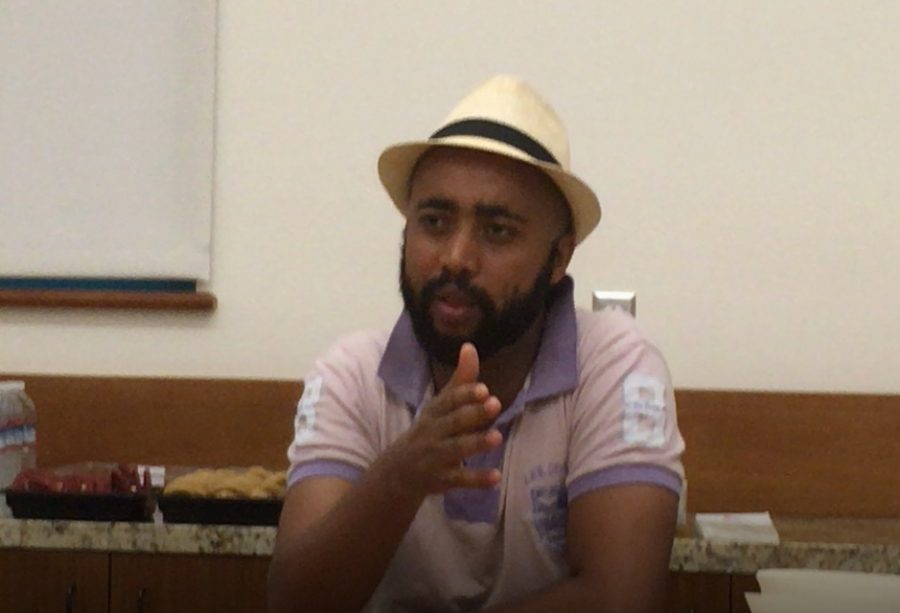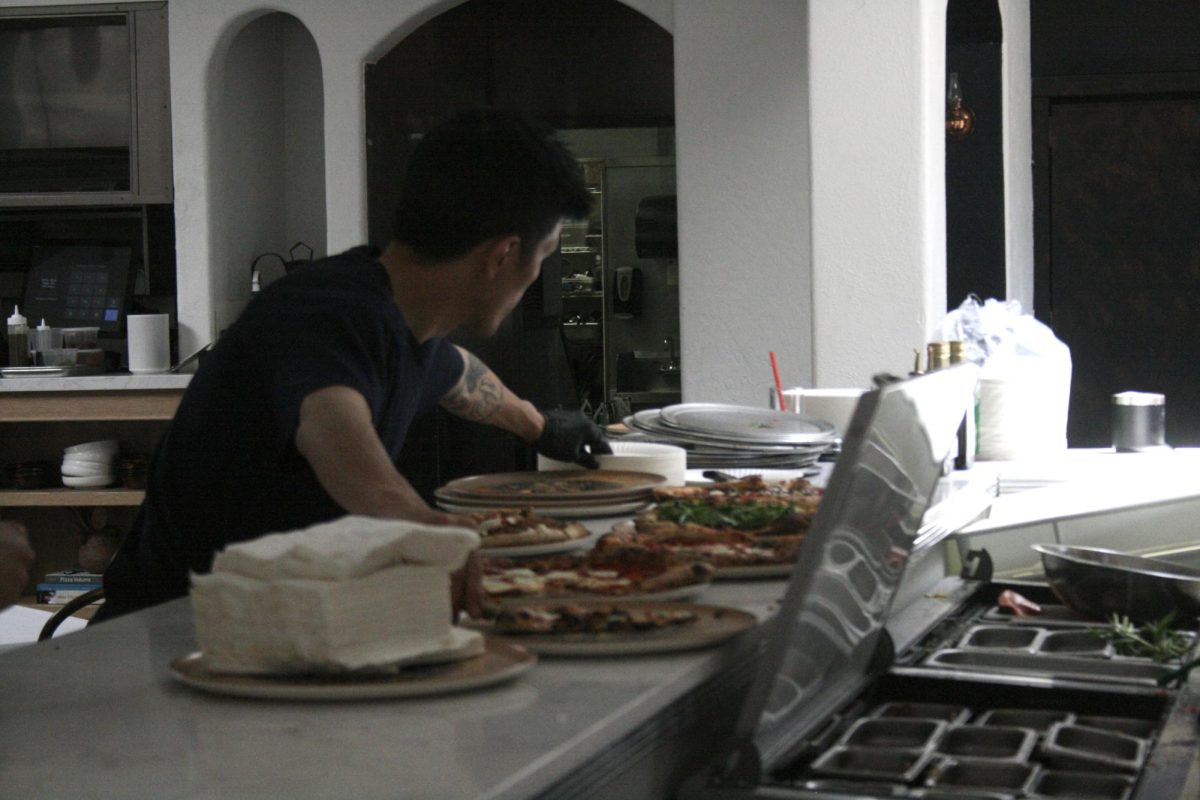Political activist Tshediso Mangope, 29, spoke at San Diego State on April 19 about his experiences with the South African apartheid and issues in Israel.
The event, “It’s Not All Black and White,” was hosted by Students Supporting Israel, a club that highlights the Jewish state’s culture and contributions to the world. Much of the discussion revolved around the misappropriation of the term apartheid to describe what has been occurring in Israel. Mangope shared information about his activism within South Africa, first with the apartheid movement there and then with the Boycott, Divestment and Sanctions movement — a pro-Palestinian campaign that he is no longer a part of.
Mangope became involved with apartheid movements in South Africa during his last year of high school and continued on into college. His groups worked with activists around the world to try and end the discrimination in his country.
“We were indebted to extend a hand of solidarity to whoever is oppressed across the world,” Mangope said. “And this is how we ended up joining BDS. What was sold to us was the reality of the state of Israel being a parted state. All you needed to do was say there was an apartheid somewhere else and we are ready to join.”
He traveled to Israel in January, a trip that he said forever changed his life. There he witnessed nothing like that of what was occurring in his country. The Arabs and Palestinians who were Israeli citizens were well integrated in society and allowed opportunities to flourish and participate in the economy and politics of Israel.
They also visited the Palestinian refugee camps in order to try to understand the sentiments towards Israel among the Palestinian people. There were both sides of the spectrum in the camp. Some individuals wanted peace with their Israeli neighbors and others wanted to take back Israel’s land and claim it as their own.
“We were shocked by the amount of energy, drive and commitment from among Palestinian people who are committed to working towards finding peace in that area,” he said.
However, there were still many discrepancies between what the BDS movement had been telling them about oppression in Israel and the country they were witnessing with their own eyes.
“We have got to look at what is happening in the state of Israel and make a determination of whether or not a comparison of what’s happening there with the conflict and what happened in South Africa is a fair comparison,” Mangope said. “I don’t think that it is correct for anybody to use other people’s struggles and challenges to sustain their own project.”
After that trip, Mangope began speaking to groups of people about his experiences. The group he belongs to now, Africans4peace, seeks to tell the truth on what is occurring in Israel without advocating for either side.
“I was energized, more than ever, to speak about peace but not to take sides,” he said. “I realized the sort of damage that we had done by demonizing the state of Israel while celebrating the other side.”
The solution, he said, needed to come from the people of the state of Israel and Palestine. His group does not try to tell people what the solution should be. Those involved in the conflict should make the determination and receive support from the outside world.
“We cannot deny that the people of Palestine need to have a state of their own,” Mangope said. “What we do is encourage both Israelis and the people of Palestine to come together, to find each other, come to the negotiation table without predetermined positions and find a lasting solution to their conflict. We cannot go in and tell them how to deal with their problems.”
Daniella Lewis, 55, who attended the event said she found Mangope very inspiring. Lewis is on the board of the San Diego chapter of StandWithUs, a non-profit Israel advocate group. She has experience in this particular issue: She lived in Israel until she was 15 and then moved to South Africa.
Lewis said that it would have been apparent to Mangope that his beliefs on Israel from BDS were incorrect after just stepping onto a bus where there would have been no segregation. The story would not have added up.
“It’s very important to go to a place and see it for yourself,” Lewis said. “You have to do your own research because you don’t know whose agenda you are listening to.”
Gal Winrebe, 27, said he enjoyed the discussion but thought it could have been more successful if more people had attended. Winrebe is the Jewish Agency Israel Fellow for the Hillel of San Diego SDSU chapter.
“I think what we should have done was work harder to reach the community,” Winrebe said. “If preaching to the choir works, we need to find more members of the choir.”










